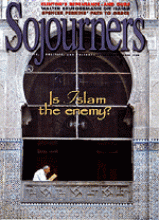How can faith be proclaimed in a manner that will be both satisfying and challenging? How can people come to be embodiments of faith, whose lives reflect their baptismal covenant and the good news of Jesus Christ? These complex questions defy a simple response.
Critical theological thought, however, must be at the center of Christian education curricula. Of course, many other criteria must be considered when selecting Christian education curricula, but fostering the ability to think theologically needs to be given due regard.
Too often people are tempted to think of theology as an exotic discipline. Granted, theology does consider questions and issues that are shrouded in mystery. But theology itself is really concerned with the things of everyday life, things that are common to all of us. Theology is concerned with our experiences and questions about God, with who we are as Gods children, and with the world God created and sustains. Theology seeks to connect all things with God. Thinking theologically, then, is an ongoing determination to interpret life-including our commitments, actions, and indeed all reality-in relationship to God.
People are also tempted to think of theology as only the responsibility of clergy and academics. On the contrary, theological thought that is most reflective of and challenging to human experiences of God will be shaped by the history of the believing tradition that informs it and the experience of those who live and ponder it. Christian educator Thomas Groome suggests that theology should be done on all of our feet rather than in only some of our heads. In other words, theological thinking should be the responsibility of all Christians seeking to live their faith-those in the seminary and those in the pew.
Read the Full Article
